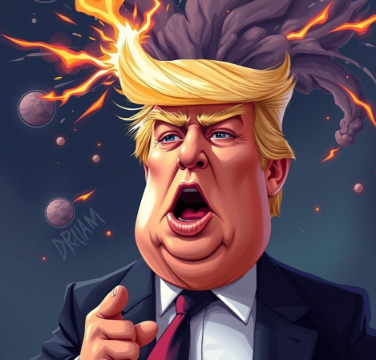$TSMC $NVDA $INTC
#Taiwan #USChinaTrade #Semiconductors #Tariffs #Investment #StockMarket #ChipShortage #GlobalTrade #Trump #TechIndustry #SupplyChain #EconomicPolicy
The Taiwanese government has pledged to increase investments in the United States following recent comments by former president Donald Trump, who accused Taiwan of “stealing” the American semiconductor industry. Trump, who has consistently targeted the global supply chain model in his economic policies, suggested imposing new tariffs on key goods, including semiconductors, if re-elected. His remarks have added pressure on Taiwan Semiconductor Manufacturing Company ($TSMC) and other tech firms operating on both sides of the Pacific, raising concerns about potential disruptions in the already fragile semiconductor market. Taiwan, seeking to maintain strong diplomatic and economic ties with the U.S., has responded by reiterating its commitment to expanding investment, particularly in chip manufacturing facilities within the United States. Companies like $TSMC, which already operates a plant in Arizona, could ramp up their U.S. presence to mitigate policy risks and sustain access to its crucial American client base, including firms like $NVDA and $AAPL.
Financial markets reacted swiftly to Trump’s statements, with shares of U.S.-based chipmakers such as $NVDA and $INTC experiencing volatility. Analysts have pointed out that any move to restrict Taiwanese chip imports into the United States could significantly disrupt supply chains, potentially leading to price increases for technology products globally. The semiconductor industry is highly interdependent, with raw materials, manufacturing, and final assembly spanning multiple countries. A shift towards self-reliance in the U.S. would be costly and time-consuming, making further Taiwanese investment in American manufacturing facilities an attractive alternative. Additionally, any uncertainty in U.S.-Taiwan trade relations could provide opportunities for Chinese chip companies to gain market share, which could have long-term geopolitical and financial implications for the industry.
The broader stock market has also responded cautiously, with increased volatility among semiconductor stocks as investors weigh the implications of potential tariffs and policy shifts. If Trump were to implement harsher restrictions on Taiwan’s semiconductor exports, this could benefit American chipmakers seeking to increase domestic production but may also lead to retaliatory measures from Taiwan. The global semiconductor industry is still recovering from recent supply shortages, and further disruptions could hinder economic growth in multiple sectors that rely on advanced chips, from automotive manufacturing to AI-driven technology. Investors are closely monitoring $TSMC’s next moves, as any significant expansion of U.S.-based operations could ease geopolitical tensions while also offering financial stability to key players in the industry.
Despite the potential risks, some analysts view Taiwan’s commitment to increased U.S. investment as a strategic move to shield itself from economic pressure while solidifying its role as an indispensable partner in the global semiconductor supply chain. The Biden administration has also emphasized strengthening domestic production through initiatives like the CHIPS Act, which provides subsidies and incentives for semiconductor manufacturers to invest in U.S.-based production. Taiwan’s proactive response signals its readiness to adapt to potential policy shifts while ensuring continued collaboration with the United States. Whether this approach will be enough to prevent further trade tensions remains to be seen, but with semiconductor demand continuing to rise globally, the industry is likely to remain at the center of economic and geopolitical discussions in the coming years.







Comments are closed.